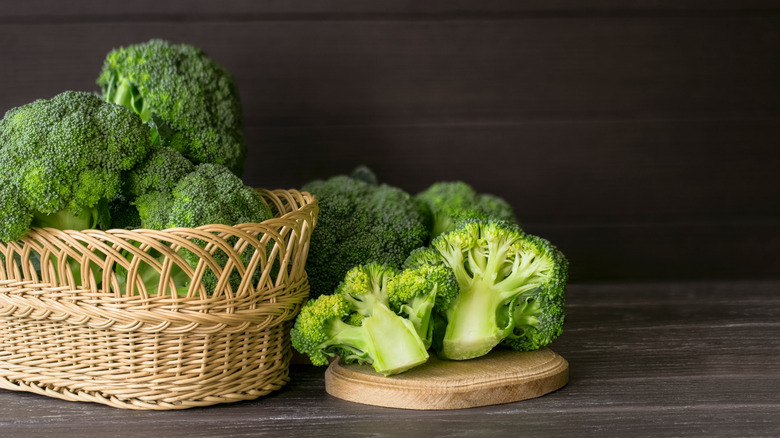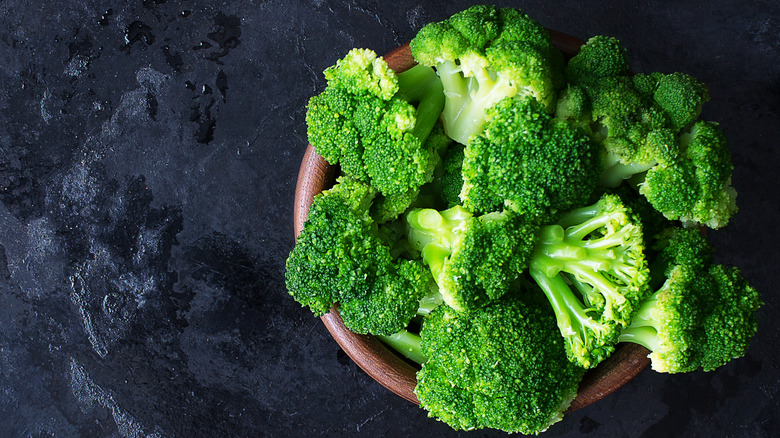Why You Should Never Boil Broccoli
It made news as the vegetable that was once banned from the White House during the presidency of George H.W. Bush, and it was known as something that both kids and adults hate to eat, according to Men's Journal. However, it seems that broccoli's popularity has changed significantly in recent years. In fact, according to an annual survey conducted by Green Giant on National Eat Your Vegetable Day (June 17), broccoli was the most popular vegetable in the United States for 2022, topping the consumer favorite list in 29 different states, reports PR Newswire.
Perhaps it's due to an increasing trend of healthier eating by Americans. As Health explains, broccoli is one of the healthiest vegetables out there. Part of the cruciferous family of vegetables, broccoli is high in protein and fiber, and packed with nutrients, including vitamins A, B6, B2, C, E, and K, along with minerals like phosphorous, copper, potassium, calcium, iron, and zinc, among others. Broccoli is also a natural detoxifier and may provide anti-inflammatory and antioxidant support, as well as contributing to heart, brain, and bone health. Not only that, but the glucosinolate compounds found in broccoli, when converted to isothiocyanate compounds, can help reduce the risk of cancer, according to the American Institute for Cancer Research.
Boiling broccoli can reduce its nutritional value
In order for the cancer-fighting isothiocyanate compounds to form, the glucosinolate compounds found in broccoli must be exposed to an enzyme stored elsewhere in the vegetable that is released when the vegetable is chewed or chopped, explains the American Institute for Cancer Research. Blanching or steaming broccoli is fine, but boiling broccoli, or any extended exposure to high temperature, destroys the crucial enzymes required for the conversion of the inactive glucosinolate to helpful isothiocyanate compounds.
Moreover, you should never boil cruciferous vegetables, including broccoli — not only does boiling often result in mushy and lackluster florets, it also causes the water-soluble vitamins, including vitamins C and B and folate, to leach out into the water, warns Healthline. That may be fine if you are planning to consume the water that the broccoli is boiled in, say in a soup or a sauce, for instance. Otherwise, avoid boiling broccoli if you want to get the most nutrients from the vegetable. Luckily, there are plenty of other ways you can prepare and enjoy broccoli, including raw, in a salad, steamed, roasted with olive oil, charred in a cast-iron, or in a cheesy casserole, as just a few examples.

